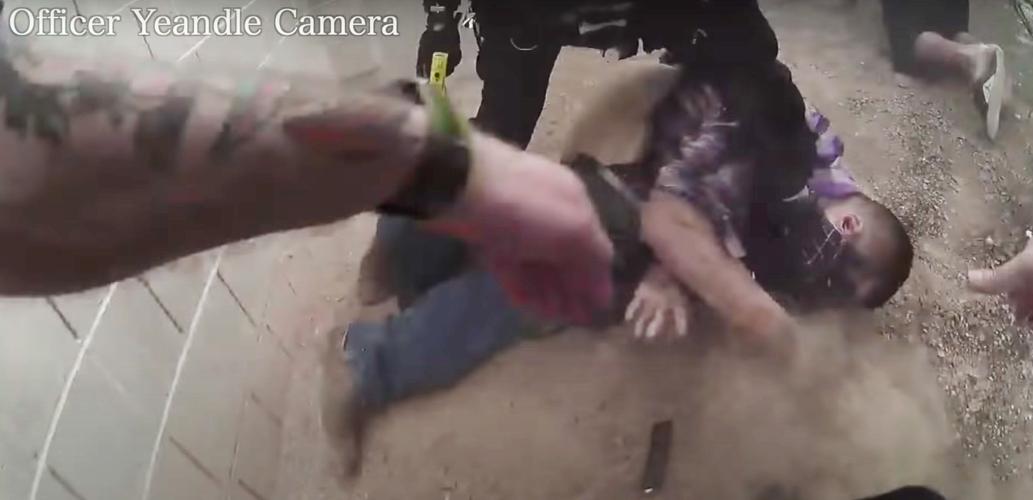A review panel that examined two in-custody deaths involving the Tucson Police Department has issued more than 50 recommendations to prevent a recurrence.
Fear of COVID-19, a shortage of Spanish-speaking 911 staffers and insufficient training all were factors in the April death of Carlos Adrian Ingram-Lopez, 27, and the March death of Damien Alvarado, 29, the panel found.
The review group, assembled by TPD, was led by two nationally recognized experts in criminal-justice reform. Members included medical and mental-health professionals, civic leaders, police critics and representatives of the police union.
The proposals for change are contained in an 80-page report released Friday by TPD. The report said there were 32 contributing factors and conditions leading to the two deaths, but the review board was not formed to judge whether “any specific participants in these events were ‘blameworthy’ or ‘liable.’”
Underlying conditions
Both deaths involved men who were high on drugs, had heart problems, were in restraints and were in a highly agitated state that put them at high risk for heart attacks, the report said.
It notes that both incidents took place in the midst of the pandemic, causing officers to fear for their health while in close quarters with suspects.
Among the recommendations for changes:
- Training 911 personnel to speak conversational Spanish or have a translator immediately available. In the case of Ingram-Lopez, police response was hampered because a 911 call-taker did not speak Spanish and the only Spanish speaker on duty was busy on another call when Ingram-Lopez’s grandmother called for help. Instead of being properly dispatched to a mental health call, officers were instead sent out to an “unknown trouble” call and were not prepared for what they encountered.
- Improved training for 911 personnel to ask more specific questions.
- Improved training for officers to better recognize symptoms that put suspects at risk of heart attack.
- An increased emphasis on de-escalation tactics to calm things down when they first arrive.
- Dispatch paramedics immediately when drug use is a factor to 911 calls instead of waiting for police to arrive and make a request for medical aid.
- Train officers in restraint techniques for people with mental-health issues.
- Reconsider the effectiveness and mental-health impacts of using spit sock face coverings for suspects in such situations. Both the men who died had their faces covered with spit socks, which may have made them more frightened or aggressive, the report said.
- Additional training for police on how the use of profanity escalates tense situations and increases disrespect for policing.
- Promote the use of a nonpolice county crisis line for help with nonviolent mental-health and drug-related emergencies.
Police Chief Chris Magnus said he was gratified by the fact the group’s recommendations were agreed upon by the entire panel.
“Yes, there were missteps. And we want the community to know we are committed to learning from these incidents and to being transparent about what we found,” Magnus said.





